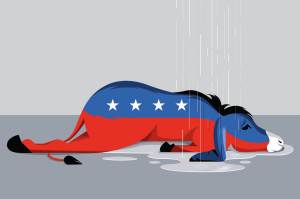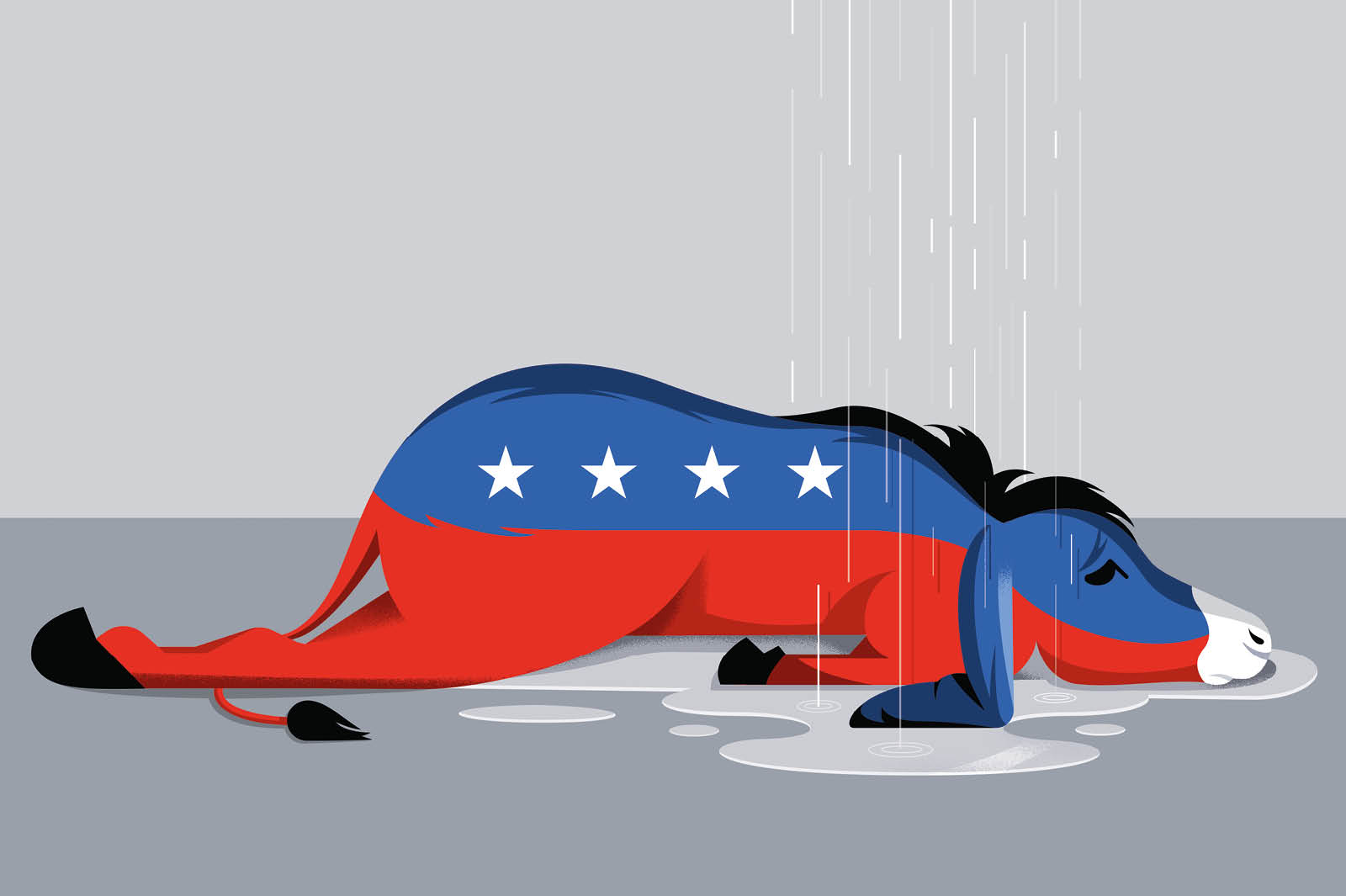Were I to overcome a lifelong skepticism about the healing powers of talk therapy, I imagine languishing on a psychiatrist’s divan and whimpering something along these lines: “All this ‘woke’ stuff — I’ve even come to hate the word. Resisting its idiocies is taking over my life. I worry that I’m not setting my own agenda. When you decry something as stupid, aren’t you still babbling about something stupid? It’s a big, wonderful world out there, and ‘wokery’ is killjoy, reductive and mean. I feel trapped.”
Yet according to the recent essay collection Cynical Therapies, I’d elicit an icy response. “Look here, Karen,” my hypothetical therapist charges with a scowl. “Your only claim to my sympathy is being female. Otherwise, you’re criminally white, straight, cis and non-differently abled. Those sad little tits and crumbling knees can’t earn you out of the white supremacist oppressor class. Unless you suddenly decide that all along you’ve been a boy, you must devote yourself to anti-racism, apologize for having ever been born and do the work!” Thanks, pal. Just what I needed.
Patients can expect to be lectured about their ‘privilege’ and ordered to proselytise for their own extermination
The contributors to Cynical Therapies are lecturers and clinicians in mental health who are raising the alarm about the ideological takeover of their discipline over the past twenty years. A mix of Americans and Brits — with the usual lack of dignity, the field in Britain has slavishly followed America’s into the abyss — the authors are heretics and, to many colleagues, traitors. The book is a cry for help.
Few doctrines could be more self-evidently antithetical to the traditional imperatives of psychotherapy than “Critical Social Justice,” aka that tiresome, overworked term beginning with “w.” Although psychiatry has developed a wide range of approaches, not long ago therapists of all persuasions were coached to display openness, empathy, curiosity and neutrality. Good therapists avoided prescriptive “answers,” which the patient was encouraged to arrive at independently. They withheld judgment, appreciated complexity and, most of all, listened. Focus was on the individual. The premise of the therapeutic process was that people can be helped to change. Why else would patients show up?
CSJ, along with its little brother, Critical Race Theory, is a closed system — like those articles to which you can no longer add comments. It espouses perfect certainty: every human relationship is about power. You’re either the oppressed or the oppressor, and this world view recognizes no other categories. Far from being empathetic, the creed is pitiless, especially regarding popular majorities. Neutrality? Please. Fun extracurricular activities: labelling, blaming, shaming and getting people fired.
Postmodern progressivism has all the answers and will happily shove them down your throat. It’s about nothing but judgment. It has no time for complexity. Given its simplistic formulas — you’re a good person or a bad person — whatever is there to be curious about? Its crusading converts aren’t listeners but preachers. The catechism has no interest in the individual. “Identity” is wholly conferred by membership of groups, into which we’re helplessly born. This theology endorses predestination: western countries are irretrievably racist, and white people are damned. Hardly a perspective that allows for every patient to get better.
Accordingly, if folks who can’t credibly claim to be victimized by giant social badness make appointments with graduates of modern psychology programs, patients can expect to be lectured about their “privilege” and ordered to go forth in sackcloth to proselytize for their own extermination. Any problems such moral filth brings to the office will be interpreted as guilt pains over bigotry (something like trapped gas). Were you hoping to tease out your ambivalent relationship to your mother, tough luck. If you’re conservative or simply male — that is, a proponent of “masculinity ideology” — go home.
Certifiably “minoritized” patients aren’t much better off. Their troubles are now understood only in the context of oppressive structural forces they’re too weak to resist. Rather than nurture resilience and responsibility, writes one Jungian lecturer, “We encourage a mentality of victimhood which keeps them trapped in outrage and powerlessness.” As for the trans contagion, psychotherapy has predictably swallowed “affirmative care” hook, line and sinker, making clinicians complicit in what’s bound to be viewed, once we come to our senses, as this century’s most unforgivable medical scandal.
Why would anyone seek counseling to be browbeaten with a partisan cudgel? They wouldn’t. Thus, writes Cynical Therapies editor Val Thomas, “The most likely outcome will be the chaotic breakdown of the field itself. As CSJ moves through the therapy professions in its usual manner, dismantling, disrupting, decolonizing and problematizing all that exists therein, it will hollow out the center.” When clinicians aim no longer to heal but to morally re-educate their patients, therapists aren’t therapists, and “the whole house of cards” will collapse.
What’s happened to psychotherapy is, writ small, what’s happened to western education, healthcare, left-of-center governments and NGOs, as well as the civil service, the sciences and the arts. By its nature, this nihilistic doctrine corrupts from within every sphere it invades. CSJ resembles the fibrous, species-threatening fungus in The Last of Us, which smothers cities and takes malign control of human minds. At length, elites oppose the very purpose of their professions. Hence the National Trust despises the culture it’s pledged to preserve. The British Museum gives away its artifacts. Doctors reject western medicine for indigenous superstitions. Classicists denounce the Greeks and Romans as too white. English professors renounce Shakespeare. Therapists renounce therapy.
I’m tepid on therapy myself. For a few well-off friends in New York, weekly sessions of introspection seem an overpriced indulgence. Still, parents of anorexic, suicidal or addicted kids must be desperate for a resort, and sometimes advising “maybe you should see someone” provides the merciful illusion of “doing something.” At least talking out problems won’t likely do any harm, and making any positive commitment can be a first step to solving them. What is not a solution is being indoctrinated into a belief system that is ugly, cruel, hopeless, arid, crude, rigid, deterministic, civilizationally annihilative and, yes, you guessed it, stupid.
This article was originally published in The Spectator’s UK magazine. Subscribe to the World edition here.

























